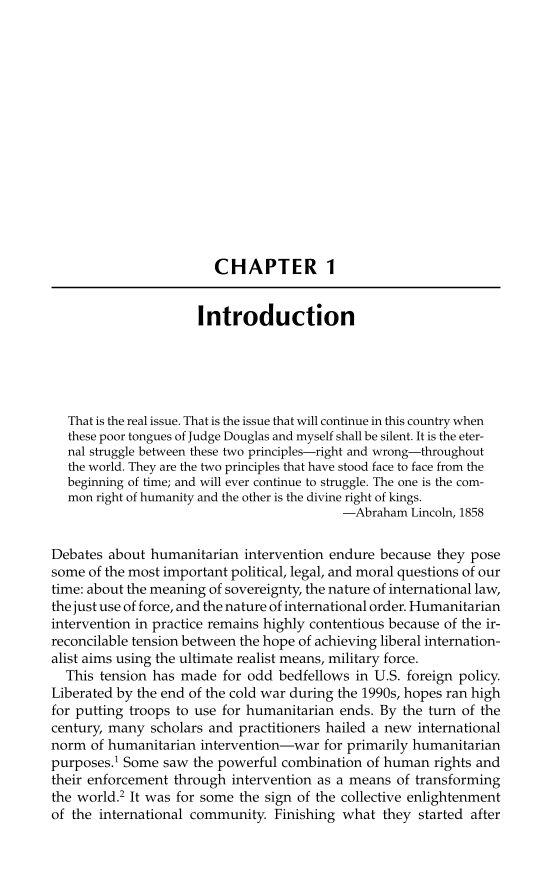CHAPTER 1 Introduction That is the real issue. That is the issue that will continue in this country when these poor tongues of Judge Douglas and myself shall be silent. It is the eter- nal struggle between these two principles—right and wrong—throughout the world. They are the two principles that have stood face to face from the beginning of time and will ever continue to struggle. The one is the com- mon right of humanity and the other is the divine right of kings. —Abraham Lincoln, 1858 Debates about humanitarian intervention endure because they pose some of the most important political, legal, and moral questions of our time: about the meaning of sovereignty, the nature of international law, the just use of force, and the nature of international order. Humanitarian intervention in practice remains highly contentious because of the ir- reconcilable tension between the hope of achieving liberal internation- alist aims using the ultimate realist means, military force. This tension has made for odd bedfellows in U.S. foreign policy. Liberated by the end of the cold war during the 1990s, hopes ran high for putting troops to use for humanitarian ends. By the turn of the century, many scholars and practitioners hailed a new international norm of humanitarian intervention—war for primarily humanitarian purposes.1 Some saw the powerful combination of human rights and their enforcement through intervention as a means of transforming the world.2 It was for some the sign of the collective enlightenment of the international community. Finishing what they started after
Document Details My Account Print multiple pages
Print
You have printed 0 times in the last 24 hours.
Your print count will reset on at .
You may print 0 more time(s) before then.
You may print a maximum of 0 pages at a time.




















































































































































































































































